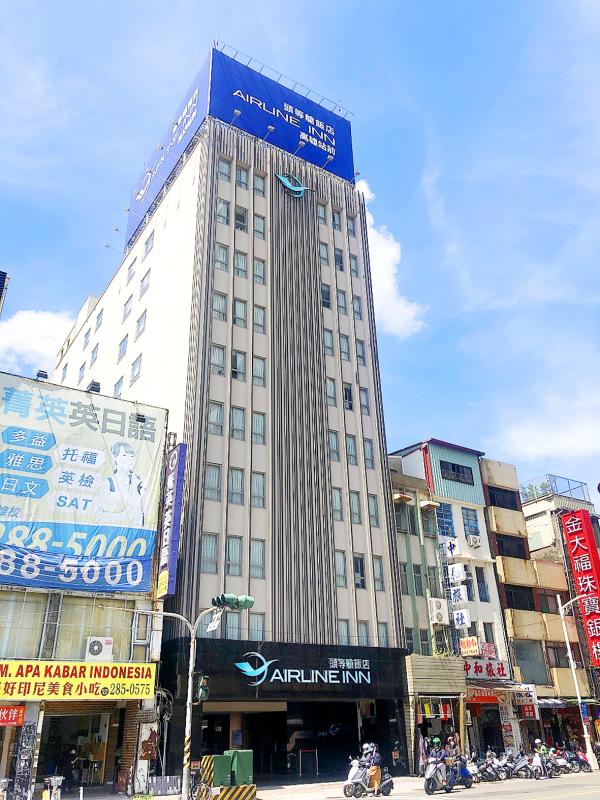About 50 hotels across Taiwan are seeking to exit the market as they succumb to the bleak business outlook amid international travel restrictions imposed to combat the COVID-19 pandemic.
Yomi Hotel (優美飯店) on Minsheng E Road, Sec 1, in Taipei is seeking to transfer ownership with an asking price of NT$950 million (US$32.15 million) and a pledge for a lease contract that guarantees a 3 percent return.
The budget hotel, with room rates that start from NT$1,400 per night, maintains normal operations, but has been struggling since March, when the government placed restrictions on inbound and outbound travel.

Photo courtesy of PWC Taiwan Real Estate
Occupancy rates for hotels in Taipei have dropped below 20 percent, despite a noticeable pickup in May and last month.
Yomi has tapped the local branch of international property broker Cushman & Wakefield to help find buyers.
Cushman & Wakefield Taiwan general manager Billy Yen (顏炳立) last week said that several buyers have shown interest, but are demanding greater concessions than hotels are willing to offer.
On average, sellers would take 10 percent off their asking prices, but potential buyers are looking for discounts of 30 to 40 percent, Yen said.
Leefang Group (李方酒店管理集團), another domestic hotel group, is looking to sell its Royal Seasons Hotel Taipei (皇家季節酒店) on Nanjing W Road and Airline Inn (頭等艙酒店) in Kaohsiung for a combined NT$1.68 billion.
Other international property brokers have also been asked to help.
Colliers International Taiwan (高力國際) said that a resort hotel with hot springs in Yilan’s Jiaosi Township (礁溪) is seeking to exit the market with a price of NT$6 billion.
Medium-sized hotels that lack the support of parent groups are more vulnerable financially and have no choice but to take action to stop losses, said Andy Huang (黃舒衛), researcher at REPro Knight Frank, another international broker.
Some of the hotels cater to Southeast Asian tourists.
Even though the hospitality industry has entered a dormant period, foreign and domestic buyers have expressed interest in taking over ownership, but they do not agree with sellers over prices, citing lingering economic uncertainty, Huang said.

Real estate agent and property developer JSL Construction & Development Co (愛山林) led the average compensation rankings among companies listed on the Taiwan Stock Exchange (TWSE) last year, while contract chipmaker Taiwan Semiconductor Manufacturing Co (TSMC, 台積電) finished 14th. JSL Construction paid its employees total average compensation of NT$4.78 million (US$159,701), down 13.5 percent from a year earlier, but still ahead of the most profitable listed tech giants, including TSMC, TWSE data showed. Last year, the average compensation (which includes salary, overtime, bonuses and allowances) paid by TSMC rose 21.6 percent to reach about NT$3.33 million, lifting its ranking by 10 notches

Popular vape brands such as Geek Bar might get more expensive in the US — if you can find them at all. Shipments of vapes from China to the US ground to a near halt last month from a year ago, official data showed, hit by US President Donald Trump’s tariffs and a crackdown on unauthorized e-cigarettes in the world’s biggest market for smoking alternatives. That includes Geek Bar, a brand of flavored vapes that is not authorized to sell in the US, but which had been widely available due to porous import controls. One retailer, who asked not to be named, because

SEASONAL WEAKNESS: The combined revenue of the top 10 foundries fell 5.4%, but rush orders and China’s subsidies partially offset slowing demand Taiwan Semiconductor Manufacturing Co (TSMC, 台積電) further solidified its dominance in the global wafer foundry business in the first quarter of this year, remaining far ahead of its closest rival, Samsung Electronics Co, TrendForce Corp (集邦科技) said yesterday. TSMC posted US$25.52 billion in sales in the January-to-March period, down 5 percent from the previous quarter, but its market share rose from 67.1 percent the previous quarter to 67.6 percent, TrendForce said in a report. While smartphone-related wafer shipments declined in the first quarter due to seasonal factors, solid demand for artificial intelligence (AI) and high-performance computing (HPC) devices and urgent TV-related orders

Prices of gasoline and diesel products at domestic fuel stations are this week to rise NT$0.2 and NT$0.3 per liter respectively, after international crude oil prices increased last week, CPC Corp, Taiwan (台灣中油) and Formosa Petrochemical Corp (台塑石化) said yesterday. International crude oil prices last week snapped a two-week losing streak as the geopolitical situation between Russia and Ukraine turned increasingly tense, CPC said in a statement. News that some oil production facilities in Alberta, Canada, were shut down due to wildfires and that US-Iran nuclear talks made no progress also helped push oil prices to a significant weekly gain, Formosa said